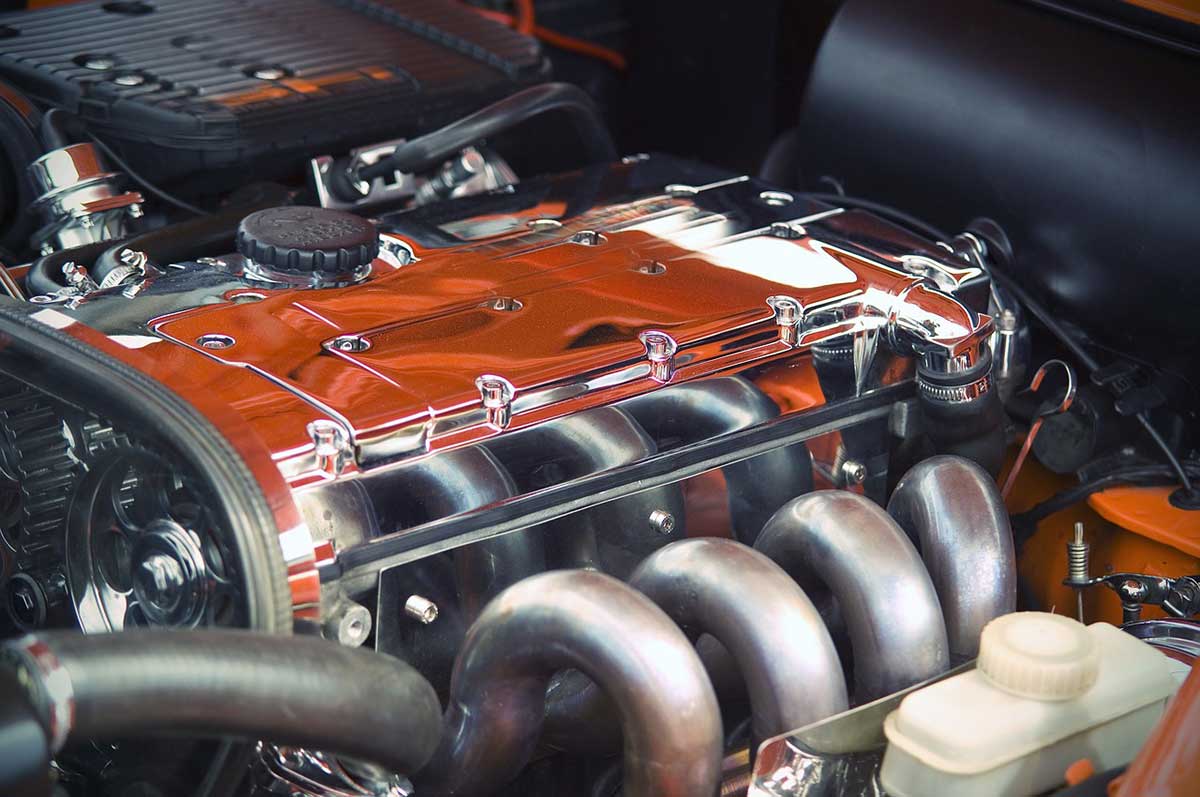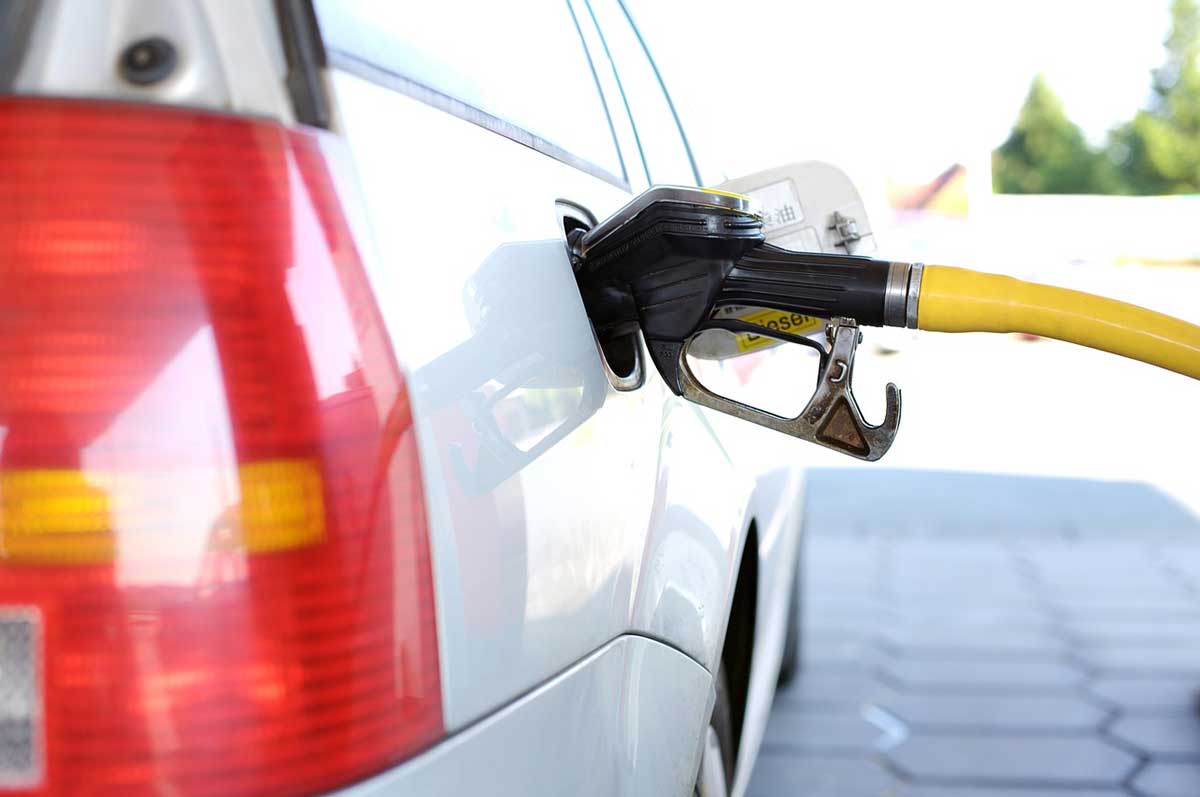Petrol Engine and Diesel Engine
The petrol engine and diesel are used in most cars are highly similar. In essence, they are internal combustion engines that work using a two or four-stroke cycle. In an internal combustion engine, the power cycle is made up of four phases: intake, compression, power and exhaust.
In the intake phase, air is drawn into cylinder through the opening intake valve. In the compression phase, the intake valve closes and air is compressed with fuel. At this point, the mixture of fuel and air is ignited to cause an explosion. It is this explosion that causes the piston to downwards and drive the crankshaft to produce motion. This is the power phase. The final phase is exhaust where the spent air-fuel mixture is expelled out of the cylinder through the opening exhaust valve so that a new cycle may begin.
 |
| Petrol and diesel engines operate
using the same principle, but the difference lies in the spark plug.
Diesel engines don't have any. |
The main difference between diesel and petrol engines is that petrol engines use spark plugs to ignite the air-fuel mixture, while diesel engines rely solely on heavily compressed air. As mentioned earlier, Rudolf Diesel found that the temperature of air could be made to increase high enough if it was heavily compressed. The temperature would rise so high to the point where it could cause the ignition of diesel fuel.
Therefore in diesel engines, air in cylinder would be very heavily compressed, typically to around 14 to 23 times its original volume. In petrol engines, the compression ratio is generally much lower, because they rely more on the spark plug to begin the power phase. The compression ratio is petrol engines is typically around only around 7 to 10, with high performance vehicles having higher compression ratios of up to 13.
High compression ratios are desirable because it results in higher thermal efficiency. In other words, more energy can be extracted out of the air-fuel mixture. This also explains why diesel engines are considerably more efficient than petrol engines. In fact, diesel engines have the highest thermal efficiency of any internal combustion engine
Petrol or diesel. This is seen often at the gas station when you refuel your car. You would then double check the label on the pump handle to ensure you’re filling it right. For owners with diesel cars, the fuel cap or door would be distinctly labelled. What makes these engines different that different fuel types are required?
To start things off, in terms of form, petrol is lighter and has a more evaporative consistency compared to diesel, which is thicker and denser. Although the fuels are different, the internal combustion engines that power petrol and diesel cars are similar in essence – which is a powerplant that converts chemical energy (ie petrol or diesel fuel) into mechanical energy.

Similarities include the fuel and air mixture that is compressed inside the engine’s cylinders before it is combusted to turn the crankshaft. The crankshaft is connected to the vehicle’s transmission, which is then responsible to power the wheels.
Differences between these two engines is in the ignition stage. For a petrol engine, the compressed mixture of petrol and air is ignited by the spark plug for combustion. However, in a diesel engine, the combustion is an effect from the heat of the compressed air, which then ignites the diesel fuel mixture. Hence why spark plugs are non-existent in diesel engines and only require glow plugs to heat the combustion chamber. In older generation diesel engines, the pre-heating was done when the key is turned, while modern vehicles will automatically start the heating upon unlocking the car.
Both petrol and diesel engines employ the four strokes of intake, compression, combustion and exhaust.

Differences in Power Output for Diesel and Petrol Engines
Petrol engines have a lower compression ratio compared to diesel engines thanks to the aid of the spark plug and higher volatile fuel. On the opposite, diesel engines’ higher compression ratio results in higher torque. (Torque is the twisting force that is produced by the engine’s crankshaft.) This is one of the reasons why it is used in heavier vehicles. However, diesel engines in passenger cars have caught on and gained popularity due to the torque benefits and increased mileage.
Reliability
Diesel engines tend to be more reliable and require little care, but is also more expensive to make. These days, cars and SUVs that run on diesel have performance levels similar to a petrol engine, but with added mileage. In short, a diesel engine will be more cost efficient in the long term, and it saves up on repair bills as well.

Environmental Concerns
While diesel cars in the past have been known to burn much dirtier than petrol cars, some modern diesel fuels and engines have improved significantly. However due to recent developments in regards to diesel car emissions, vehicles are still unable to meet stricter European emission standards. It is expected that European cities will follow Germany’s ruling on banning older diesel vehicles; with Hamburg being the first to do so for Euro-5 standard cars and older.
The Pros and Cons
Besides being very efficient, what other advantages do diesel engines have over their petrol counterparts? And what disadvantages do diesel engines have? Let’s take a look at some of the important ones briefly here.
Pros
Not only are diesel engines more efficient, diesel fuel is also cheaper to purchase. At the time of writing, diesel fuel is around 40% cheaper per liter than petrol. This means diesel vehicles will be cheaper to run, which also explains why buses and most taxis have diesel engines.
Because diesel engines are so efficient, cars can get incredible mileage out of them. It is not uncommon for passengers cars with modest 50 liter fuel tanks to be able to travel over 1000km on a single tank. This means more time spent traveling and less time spent refueling.
To withstand the high compression of gases within the cylinders, diesel engines are built to be extremely hardy and will generally last longer than their petrol counterparts. They can also go longer between maintenance.
Diesel engines can be made to run on alternative and renewable fuels like biodiesel with little or no modifications. Biodiesel generally refers to used vegetable oil that has been used for cooking, and is then recycled and treated so that it can be used to power diesel cars.
Cons
Diesel engines need to be built stronger to withstand the high compression of gases, as a result, they usually cost more to manufacture. Consequently, diesel cars can sometimes cost more than their petrol equivalent. This depends heavily on the manufacturer.
Diesel engines produce a distinctive knocking sound that is referred to as diesel clatter. This sound is the result of the sudden ignition of fuel which causes a pressure wave. It makes diesel engines sound less refined and noisier.
Diesel engines are heavier and less eager to rev than petrol engines, which makes them undesirable in sports cars. This also makes diesel powered cars less peppy and engaging to drive.
In Singapore, diesel cars are subjected to a special tax on top of the typical road tax which can add to the running costs of the car. Since this tax can be substantial, we will address it in greater detail below.
Special Tax
Diesel cars used to be a rarity in Singapore, and that’s not surprising considering the bad reputation it has had. Diesel cars are often considered to be polluting and slow, and it didn’t help that a huge special tax was levied on diesel cars. This special tax is placed on diesel cars because there’s no duty on diesel fuel. Petrol, on the other hand, are subjected to a petrol duty which, according to the LTA, encourages fuel conservation and discourages excessive use of petrol cars that may contribute to congestion and pollution.
But times have changed dramatically in the past decade. Diesel technology has improved rapidly, and governments are recognizing the environmental benefits that diesel cars have and have put legislations in place to promote their sales. As a result, sales of diesel cars have been on the rise. In many European countries, such as Austria, Belgium and Germany, sales of diesel cars are on a par with or have even surpassed that of petrol cars.



Keep it up Mr er
ReplyDelete